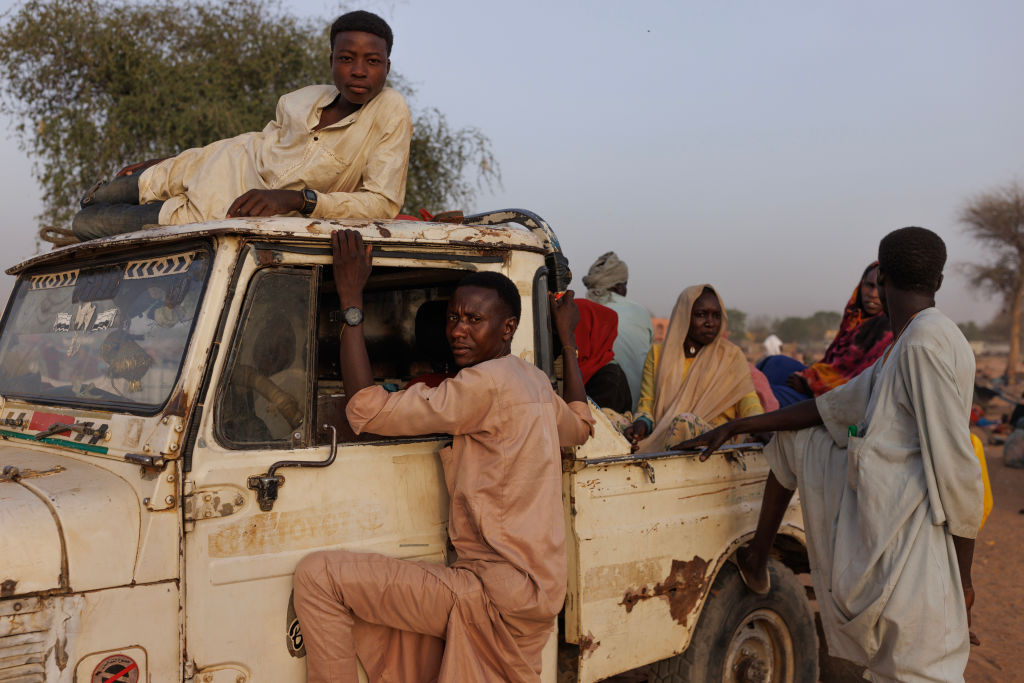Yahya Sinwar died more like a mob hoodlum than the ruthless head of a paramilitary terrorist movement. He was caught scurrying for shelter between two safe houses, carrying a couple of fake IDs, a wad of large-denomination Israeli bills, guns and breath mints. The IDF troops who killed him didn’t even know who he was — just a bad guy.
Sinwar’s demise, coming as it does after the elimination of nearly the entire Hezbollah leadership in Lebanon, is another severe blow to Iran. The Islamic Republic’s two deadliest proxies are now a bloody shambles. Its aura of strength in the Muslim world has been damaged. In Syria, too, Bashar al-Assad has bowed to pressure from Israel and moved to reduce the power of Iranian-backed militias in his country.
But Tehran has been hard at work creating other Hamas/Hezbollah clones as possible in order to extend its reach. In Iraq, it controls a state-sponsored paramilitary network known as the Popular Mobilisation Forces (PMF). Once the creation of former Iraqi PM Nouri al Maliki ten years ago, now they are an Iranian outfit.
Iran has sometimes competed, mostly cooperated with Russia
In war-torn Sudan, Iran has nurtured another terrorist proxy, known as Kizan, which has ties to Hamas, Hezbollah, as well as African branches of Al Qaeda. Armed by Iran’s Revolutionary Guard Corps (IRGC), Kizan uses guns, missiles and drones in support of the Sudanese Army faction of General Abdel Fattah, who fight the country’s military junta, the RSF, headed by General Mohamed Hamdan Dagalo (Hemdeti), who are still in control of Khartoum.
Even taking into account the stark figures of 20,000 deaths, 35,000 casualties, almost 8 million internal refugees and over two million emigrants – many to be found in overcrowded rubber dinghys in the English Channel – it’s almost impossible to whip up interest in Sudan’s fate. The conflict is dismissed as that of a failed state inexorably failing further. But Iran’s goal is to control and gain capacity to block off the Bab el Mandeb Strait — the narrow opening between two of their clients, Houthi-controlled Yemen, and that part of Sudan held by Kizan’s mate General al-Burhan, the commercial harbour of Port Sudan and the ships to and from Asia, Europe, the Eastern Coast of America. Sudan’s importance to Tehran has increased as its other instruments in the Middle East have been degraded.
Choking Israel has always been Iran’s goal, with Hezbollah to the north, Iran’s al-Quds brigades in Syria, and Hamas to the south. But its further aim is to upset the balance of Europe’s and America’s economies.
An equal beneficiary is Iran’s ally, Vladimir Putin. If Ukraine’s Black Sea grain shipments can no longer use the Suez Canal because the Red Sea is effectively corked down, she will lose two thirds of her markets, even if her customers agree to pay for the expensive (on average, an extra $800,000 per voyage) circumnavigation of all of Africa. Most of our nations swallow the cost (ultimately passing it on to Tesco, Carrefour, Edeka or Aldi customers): insurers now refuse to provide coverage to ships in the Red Sea, where commercial traffic has fallen by 80 per cent.
Using Hezbollah agents, Iran has sometimes competed, mostly cooperated with Russia to extend its influence: their common goal, everywhere, is to weaken western interests and exploit France’s setbacks from Mali to Niger to Algeria.
France’s longstanding economic network has been supplanted in many African countries by opaque new financial grids, many of them, says the geostrategic expert Alexander Grinberg, ‘funnelling… significant revenue through the Lebanese Shi’ite diaspora in countries like Guinea, Sierra Leone, and the Democratic Republic of Congo’.
Before the Iranian Ambassador to Lebanon was injured by an exploding Hezbollah pager, Grinberg wrote that Iranian diplomats ‘provided cover for Hezbollah’s activities in Africa and maintained contacts with Hezbollah grassroots operatives on the ground in African countries with local Shi’ite communities, such as Nigeria, Tanzania, and Niger’. Hezbollah also agitated in places as diverse as Côte d’Ivoire, Kenya, Uganda, Senegal — and Sudan. (The case of South Africa is different: a long-time Iran ally, with an IRGC and Hezbollah presence, Pretoria has been happy to follow Iranian and Qatari suggestions and feed accusations against Israel in the International Criminal Court.)
What we have, then, is a rogue state version of the Great Game. The past two and a half decades have seen a realignment of non-democratic agents determined to end western geostrategic and philosophical supremacy, leaving America and Europe to fumble their way out of the ‘End of History’ paper bag. From the newest incarnation of the non-aligned movement, the Brics organisation, initially dreamt up three decades ago by Russia’s then foreign minister, the late Yevgeny Primakov, to Iran (a Brics member) rebuilding a kind of terrorist new version of Komintern, the hybrid war against the West has many iterations.







Comments